Local elections 2023: Will the cost of living be an issue?
- Published
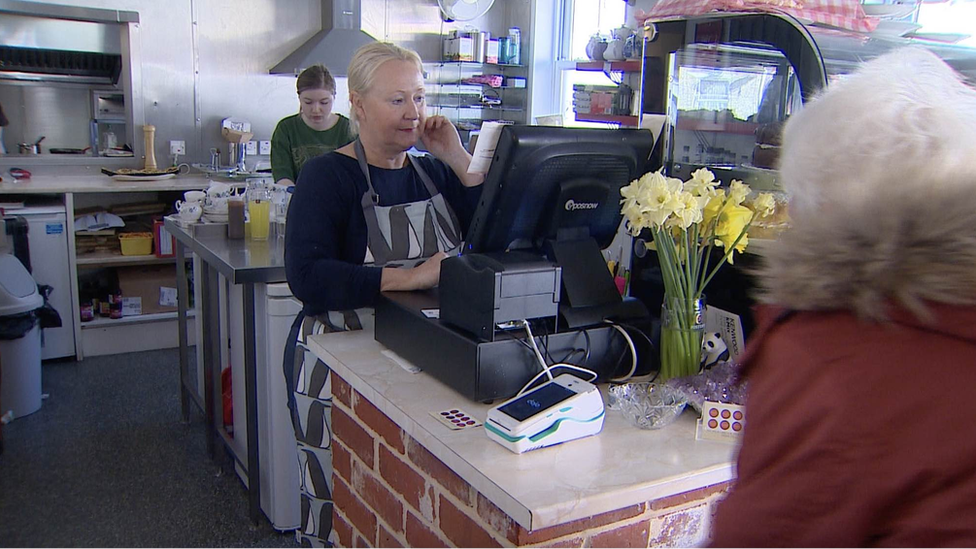
The cost of living is a topic of discussion in a Gorleston coffee shop but could it be a local election issue
Many candidates think it could be the cost of living uppermost in voters' minds in the 4 May local elections. In his budget the chancellor suggested the worst was now behind us, but opposition parties disagree. What do voters think in Great Yarmouth - the Norfolk seaside and port district currently run by the Conservatives, but Labour-controlled in the past.

'Not over the worst'
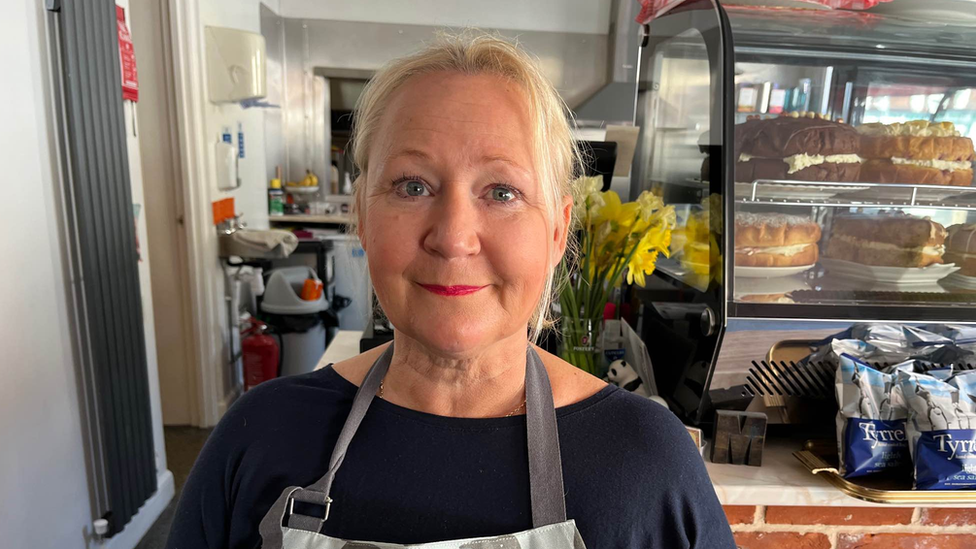
Cafe owner Karolyn Hubbard says she cannot see the cost of living crisis improving soon
At Margo's Lounge coffee shop in Gorleston, in Great Yarmouth borough, owner Karolyn Hubbard, 54, says the cost of living crisis is still very much on customers' minds.
"They're talking about it every day. It's difficult to know how people are managing really. Being a cafe means they can come in, have a coffee and keep warm for a while."
She says her energy bill is four times higher than it was in January, but she can only increase her prices by so much.
"How much can you charge for a coffee and a cake and a little breakfast? You can't over-charge for those things," she says.
"I don't think we're over the worst at all. Every invoice that comes in is different to the one before. There's always a change and it's never in the right direction you want it to be in.
"I am sure people will be thinking about this in the elections."

'Nagging thought it isn't over'
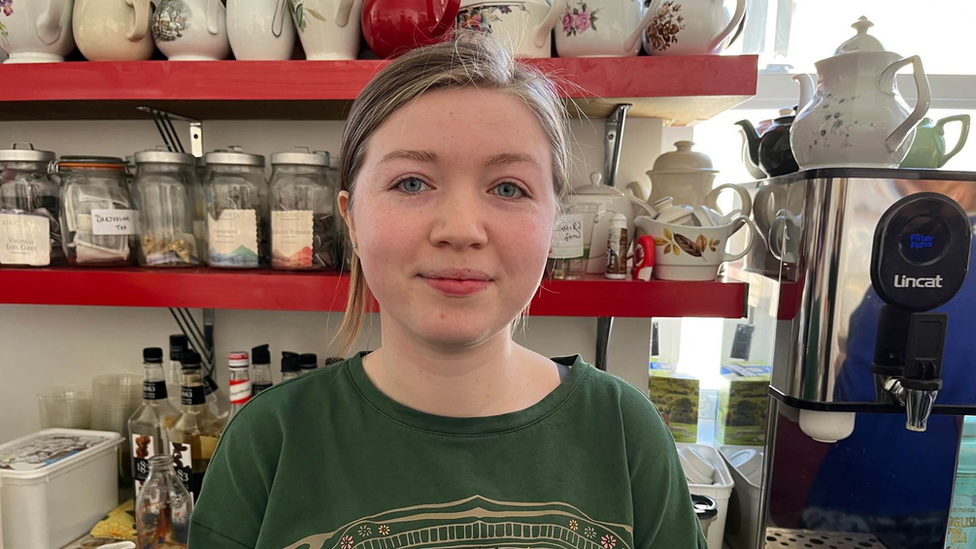
Emma Clayton says she is optimistic about the cost of living
Waitress Emma Clayton lives with her partner and says: "I'm really lucky that I don't have to pay rent and bills, but I have friends who are struggling."
She says some of her friends are thinking of starting a family "but that's not something they can do with this cost of living crisis on their minds".
The 21-year-old says she has "faith" the worst of the price rises is over.
"People are still going out and meeting their friends in places like this, but there is still this nagging thought in the back of your head that this isn't over."

'We've got to look after our staff'
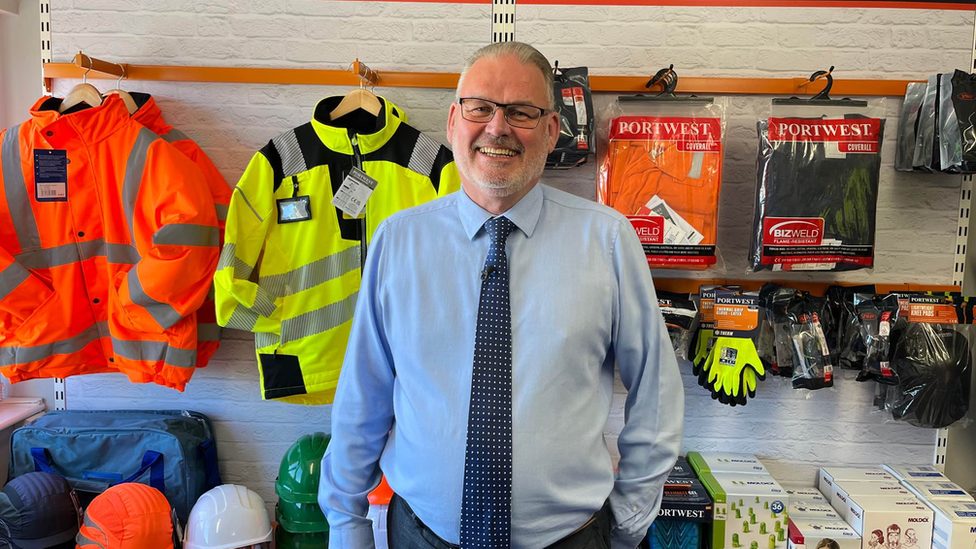
"As a business I hope we're over the worst" says Alan Baugh
On one of Great Yarmouth's industrial estates, health and safety consultant Alan Baugh runs Baugh & Foley which sells personal protective equipment.
He says: "The OBR [Office for Budget Responsibility] is saying inflation will be 2.9% by the end of the year, the IMF [International Monetary Fund] says that will bring interest rates down to pre-pandemic levels and, if that happens, that will give people a lot of confidence."
He says the last year has been hard at times with one of his suppliers increasing its prices on three occasions.
Mr Baugh also decided to give his nine staff a 10.5% pay rise in line with the rate of inflation.
"Our staff are our priority, we want them to be focused on working when they're here, not worrying about where they're going to find the next five quid from or whatever," he says.
"It is a lot [for the company] to afford but they are the future of the business - we've got to look after them."

'Checking what I'm spending'

Employee Hannah Hiseman has just booked a holiday but says it is more expensive than last year's
Hannah Hiseman, 22, one of Mr Baugh's employees, says: "I hope we're over the worst... but we all thought inflation was going to come down sooner than it has.
"I'm just making sure I'm regularly looking at my bank account and checking what I'm spending and making sure I put away enough in case any emergencies happen."

What the politicians say
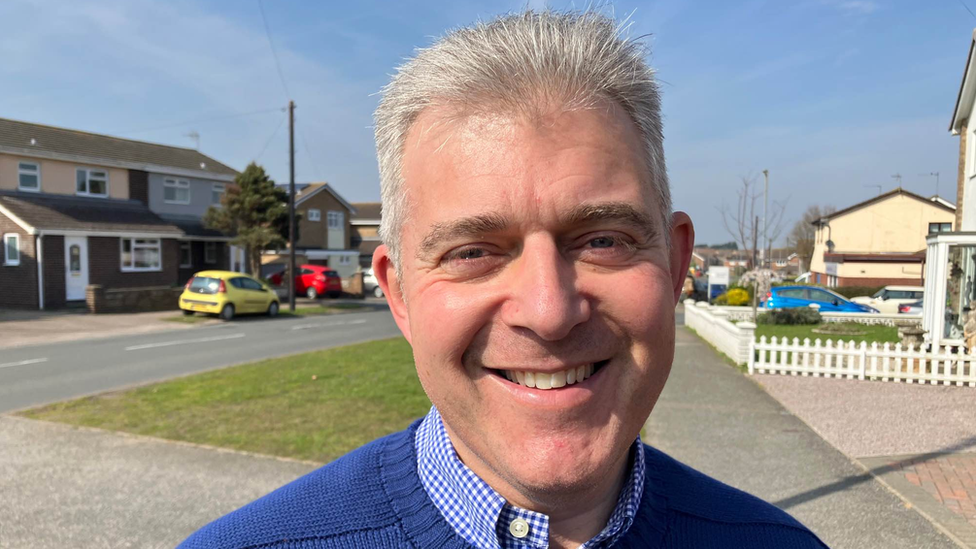
Conservative MP Brandon Lewis says the government has helped people with the cost of living
The Conservative MP for Great Yarmouth Brandon Lewis says the government has provided unprecedented financial support for people with their energy bills.
But he acknowledges that things are still tough for some people, saying: "They've seen fuel prices go up and weekly shopping is more expensive.
"What I am finding is that they recognise the work the government is doing to help them."
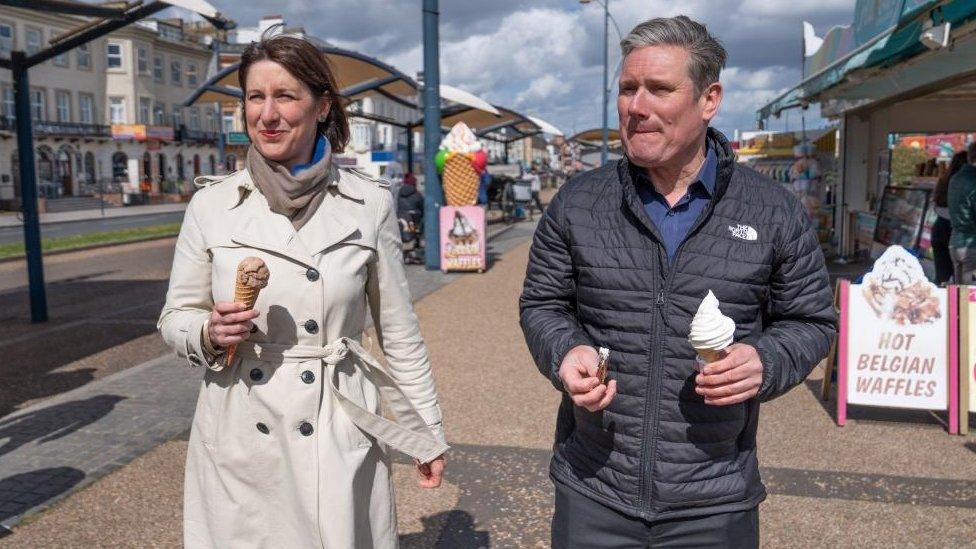
Sir Keir Starmer visited Great Yarmouth with Shadow Chancellor Rachel Reeves as part of Labour's local election campaign
On a visit to Great Yarmouth on 11 April, Labour leader Sir Keir Starmer said the government had made the wrong choices.
"In a cost of living crisis where people are really struggling to make ends meet, why are they choosing not to freeze council tax but at the same time bringing in a tax cut for the richest 1%?
"That's a basic question of your priorities, whose side you're one and who is really in your mind when you're making these big decisions."
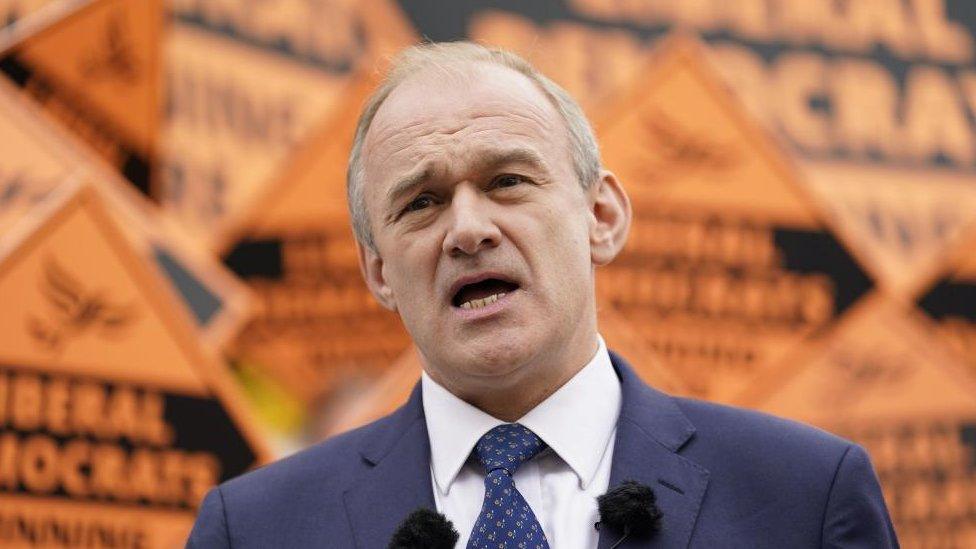
Ed Davey said the government should be providing more help on energy bills
The Liberal Democrat leader Sir Ed Davey, who was also visiting Norfolk earlier this month, said the cost of living was "really hurting many people".
He said: "We were the first party to call for a windfall tax on the energy companies.
"We've also been arguing in Parliament for more help for people and businesses with their energy bills and the cost of living and we've been very, very cross that Conservatives haven't done that."

Find BBC News: East of England on Facebook, external, Instagram, external and Twitter, external. If you have a story suggestion email eastofenglandnews@bbc.co.uk, external
- Published29 April
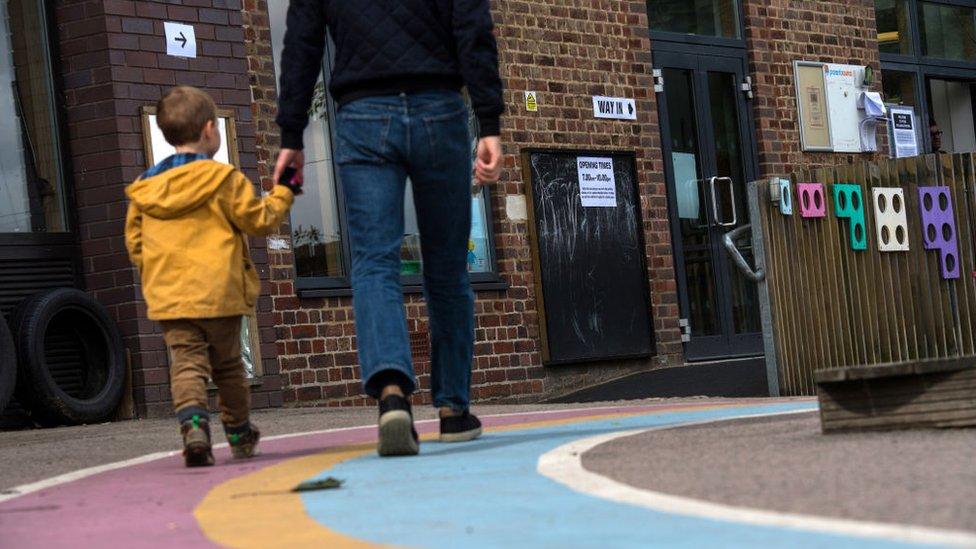
- Published3 May 2023

- Published11 April 2023
